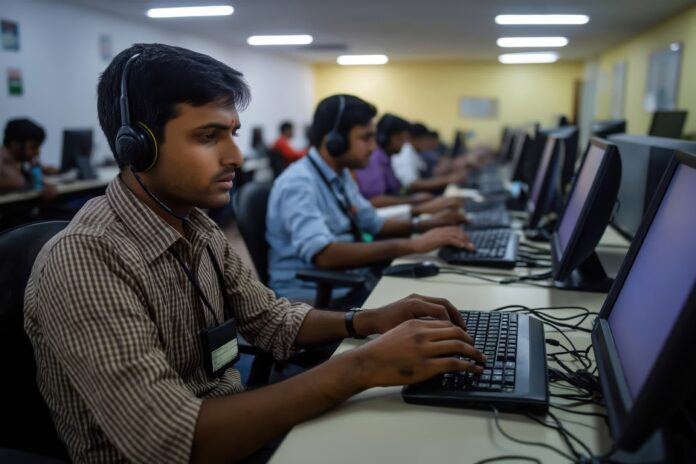The massive image: Lengthy acknowledged as a vacation spot for data expertise and help outsourcing, India is now attracting new funding from firms equivalent to McDonald’s and UK insurer Bupa, that are establishing international functionality facilities designed to handle big-data duties. These facilities, typically based mostly in main cities like Bengaluru, now assume high-stakes roles that embody remotely monitoring industrial gear and delivering customized client suggestions.
The motion just isn’t merely a play for decrease labor prices; it displays an escalating want for superior AI skills which can be briefly provide at residence for a lot of multinational companies. As recruitment prices for AI engineers in Western markets surge, the potential for “deep, scalable AI experience” in India stands out. Lalit Ahuja, chief government of ANSR, a consultancy advising on international functionality facilities, informed the Monetary Occasions that these facilities now “bridge the hole” for worldwide employers. “In consequence, GCCs are quickly rising as a strategic AI spine for a lot of of those organisations,” he informed the publication.
Tesco affords a transparent instance of this evolution. When the UK-headquartered retailer established its Bengaluru centre in 2003, it was primarily a hub for back-office value financial savings. Nonetheless, at present, below the management of Tesco Enterprise Options’ chief government, Sumit Mitra, the main target has shifted to intelligence-driven worth. “It is gone from being a labor arbitrage story’ to an ‘mental arbitrage story,'” Mitra stated.
Practically 5,000 workers on the Bengaluru centre are accountable for core features equivalent to analytically monitoring fridge temperatures worldwide and figuring out which models require substitute. Controlling these techniques centrally, Mitra stated, has helped Tesco save “hundreds of thousands of kilos” yearly by decreasing meals waste.

India’s benefit within the AI age rests on its huge workforce and growing entry to stylish expertise assets. Rohan Lobo, who leads the GCC follow for Deloitte in South Asia, famous that though India trails the US and China in AI innovation, GCCs have the possibility to alter the equation by leveraging massive language fashions and different instruments out there by means of their international mum or dad firms. “As AI turns into a core a part of progress for a lot of firms, you wish to maintain that as a strategic aggressive driver and benefit and also you wish to maintain it in home,” he stated.
GCCs should not simply supporting present merchandise; they’re additionally testing new applied sciences meant to “innovate again into the remainder of the world,” in keeping with John Lombard, Asia-Pacific head of NTT Information. The push is towards high-value contributions, and 1 / 4 of the biggest facilities at the moment are creating capabilities in areas like agentic AI and superior analytics, stated Jaspreet Singh, who leads the GCC follow at Grant Thornton Bharat.
Singh defined that whereas India’s largest cities have infrastructure to help these operations, broader funding is required for coaching and retention to remain forward of latest hubs rising in locations like Jap Europe. “In any other case, we threat shedding floor to rising international hubs like Jap Europe.”
India’s again workplace sector has undergone speedy growth, growing from $11.5 billion in income and 400,000 workers in 2010 to $65 billion and 1.8 million employees in 2021. Consultancy Inductus predicts this determine could attain $100 billion by 2030. The function of analysis and growth is rising, making up 55 p.c of sector income in 2023, up from 45 p.c eight years earlier.
Nonetheless, because the sector advances, so do the challenges of coaching expertise graduates for market wants – a degree highlighted by analysts at Goldman Sachs, who view workforce readiness as a key impediment.
For Priyank Kharge, electronics and IT minister for Karnataka – the state that homes practically 40 p.c of India’s 1,800 GCCs – the sector’s transformation marks a brand new period for the nation’s economic system. India, he stated, is now not seen solely as a service supplier, however as “an ecosystem that may ship on improvements and innovations [and] present options and merchandise on scale.”

